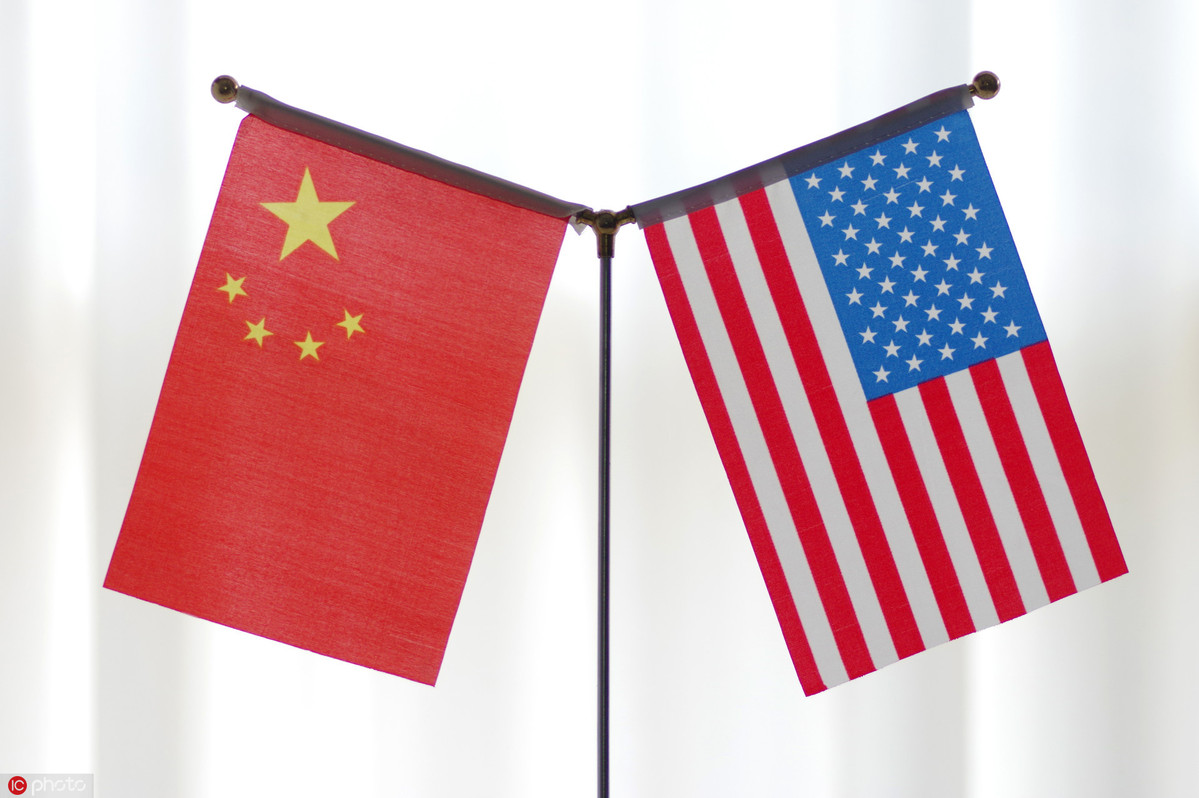High-level trade talks to resume Thursday


High-level trade negotiations between China and the United States will resume in Washington on Thursday, to be attended by Chinese Vice-Premier Liu He and United States Trade Representative Robert Lighthizer, both sides have confirmed.
It will be a new round of high-level trade talk aimed at breaking the impasse between the world's top two economies that has been rattling stock markets, stifling international trade and weakening prospects for global economic growth.
The US Commerce Department announced Monday that it is blacklisting 28 Chinese entities that it alleges are involved in rights violations and abuses.
It is not immediately clear how the latest US blacklisting of Chinese firms, and the timing of the announcement, will affect the trade talks later this week. There was no comment from the Chinese side by press time.
"Under the leadership of President Donald J. Trump, United States Trade Representative Robert Lighthizer and Secretary of the Treasury Steven Mnuchin will welcome a Chinese delegation led by Vice-Premier Liu He for continued trade negotiations between the two countries starting on October 10, 2019," the White House said in a statement on Monday.
Early on Tuesday, China's Ministry of Commerce confirmed that at the invitation of the US side, Vice-Premier Liu, also a member of the Political Bureau of the Communist Party of China Central Committee and top trade negotiator, will travel to Washington for talks scheduled for Thursday and Friday.
The Chinese delegation also includes Commerce Minister Zhong Shan, central bank governor Yi Gang, and the National Development and Reform Commission's deputy head Ning Jizhe, according to a brief ministry statement.
Topics of discussion for the high-level talks will include "forced technology transfer, intellectual property rights, services, non-tariff barriers, agriculture, and enforcement", according to the White House statement.
Prior to the principal-level talks, the two sides conducted deputy-level talks over the past weeks, with the latest meeting taking place in Washington on Monday.
The Liu-Lighthizer meeting comes after a hiatus of about two months following one in Shanghai late July.
Trump sounded a generally upbeat tone about the upcoming talks.
"As to whether or not we make a deal, I don't know. But there's certainly a good possibility," he said at signing of the US-Japan Trade Agreement and the US-Japan Digital Trade Agreement on Monday afternoon.
"We think there's a chance we could do something very substantial," Trump said. "I would much prefer a big deal and I think that's what we're shooting for."
Beijing and Washington have swapped a string of good gestures in recent weeks. Trump announced early last month to delay a planned tariff hike on $250 billion worth of Chinese imports by two weeks until Oct 15, and China also said earlier that it was exempting 16 types of US products from duties.
Late last month, China's Commerce Ministry announced that Chinese companies have concluded "significant purchases" of soybeans and pork from the US in accordance with market principles and WTO rules.
Since early September, China has booked deals for about 3.5 million tons of US soybeans, the US Agriculture Department said in a report on Monday.
White House economic adviser Larry Kudlow noted the buying of some agricultural commodities from the US is a "good sign".
"It is possible that some additional progress will be made with China toward the end of the week," he in a Fox News interview on Monday.
"We are open to wherever they may bring. We will be open to it, short term, long term, we will be open to it," he said.
The chief economic adviser also said that delisting Chinese companies traded on US exchanges "is not on the table".
"The delisting is not on the table. I don't know where that came from," Kudlow told reporters. "What we're looking at, actually, is investor protection, US investor protections ... transparency and compliance with a number of laws," he said.
Late last month, leading US business groups said they expect the latest goodwill gestures, demonstrated by governments of the two countries logged in a protracted trade war, would usher in "productive" talks and put an end to the tariff increases.




































